Tuesday, 23 February 2010
Doing God and doing politics
Desmond Tutu, the retired Anglican Archbishop of Cape Town, Nobel Prize winner, and high priest of national reconciliation, was once accused of making the Bible political. He replied: “I don’t know which Bible you are reading but mine is already political!”
The claim of Tony Blair’s spin doctor that ‘we don’t do God’ would make little sense in South Africa. Tutu was not the only hero of the struggle for whom faith was key to his motivation. Albert Luthuli (the first South African Nobel Prize winner from 1960) was a lay preacher; Chris Hani who was led the militant wing of the ANC until he was brutally killed by Apartheid forces almost became a Catholic priest; and Mandela himself ‘does God’ throughout ‘The Long Walk to Freedom’.
We have just been marking the 20th anniversary of one of the key moments in that Long Walk: the day that Mandela was released from prison, no longer a terrorist (sorry, Margaret Thatcher) but now a national leader. Mandela’s release happened because, 9 days before, FW de Klerk, the last President of the party of Apartheid, had made the speech of his life. In fact, the speech of the lives of most South Africans. In just a few paragraphs delivered to an all-white Parliament, he announced the unbanning of the ANC, the dismantling of apartheid laws, the release of anti-Government prisoners and a commitment to a universal electoral franchise.
Was it a miracle? FW dismisses the idea that he had an overnight Damascene conversion. But he does explain that he was impelled to make these changes not just driven by pragmatism but by a religious sense of what the right thing to do.
Of course, the history of politicians ‘doing God’ is not a universally positive one. The very institutional cruelty that FW dismantled in God’s name was created in God’s name by devout members of the Dutch Reformed Church. George W (if not Tony) claimed God’s revelation for his invasion of Eye-raq. And fundamentalist bombers from a variety of religions use God as their excuse as they pull the triggers or crash the planes.
Faced with this, the common reaction in the ‘developed’ world is to dismiss any mixing of God and politics. The syllogism runs thus: “Religion leads to violence. Violence is to be avoided. Religion is to be avoided.” But hidden in that is a slide from ‘some religion leads to violence’ to ‘all religion leads to violence’ and even ‘religion only leads to violence’. And even though some religion does lead to violence it is hardly the only thing that does. So do nationalism, and private property, and political parties, and armies. And we don’t assume that we can just avoid those.
The Dawkins disciples uniquely scapegoat religion and seek to remove it from the public space. Constitutional clauses of separation of Church and State attempt to address this. But the fact that religion remains embroiled in politics in the USA (where there has been such a clause for 230 years) but not in the UK (where there isn’t) suggests that such a top-down approach has little impact. South Africa in many ways is like the US. On paper a liberal secular constitution with a clear separation of Church and State; but at the same time a deeply religious society in which the majority of people are Church-goers (or Mosque-goers or Temple-goers) and in which God’s presence is routinely invoked in public discourse.
To try and ignore God would, at the very least, be disrespectful of the millions of voters for whom God’s presence is key to their sense-making of themselves and of the world. It is hardly democracy to tell people that they can vote freely but only once they have discarded one of their deepest beliefs. But more than that, I believe that religion can be a force for good in the world and so needs to harnessed in the pursuit of good politics, no less than in the pursuit of good education, good business or good charity.
That is one of the reasons why the Jesuit Institute was set up. Not to convert politicians to become believers – that hardly needs doing in SA – but to promote a presence of God in politics that reinforces the FW/ Tutu/ Luthuli legacy. For example, last year during the elections we distributed 10,000 leaflets encouraging Catholics to think about how to apply their faith principles when in the voting booth.
Thus, I found myself last Monday in the Cathedral offices in Cape Town directly opposite Parliament at a reception for ministers, MPs and Ambassadors (sadly without the Ferrero Rocher). The reception was hosted by the Catholic Parliamentary Liaison Office – a lobby group like so many others – but one that seeks to draw on the Church’s experience especially in education and healthcare and use it to inform national debate and policy. (Hopefully it also discourages certain Church leaders from holding forth on subjects where the Church has little expertise and fails to learn from experience.)
We were launching a series of reflections for Lent. Every day since Ash Wednesday, each of the country’s 420 MP’s has been receiving a daily e-mail from the Jesuit Institute. It contains a quotation (from people as diverse as Isaiah, St Augustine, Gandhi or Wangari Maathai), a short commentary and a prayer. Of course the MP’s can un-subscribe; but so far almost no one has. And – given that politicians need as much help as they can get – we are inviting others to pray with and for our MP’s and so far 500 people have signed up. (If you would like see an example of the reflections or even sign up click: www.jesuitinstitute.org.za/en/node/186#attachments)
If politicians are going to ‘do God’ – and it would be hard to stop them – I believe they need to be informed and challenged. Our reflections are not vague platitudes but, in the Ignatian tradition, prompt MPs to reflect on their actions and see where they are building the Kingdom, and where they are not. We hope to prompt our politicians to ‘do God’ in a constructive way; and we also hope to model how our God-people can do politics in a good way. To quote Tutu again: “Religion is like a knife: you can either use it to cut bread, or stick it in someone's back.”
Subscribe to:
Post Comments (Atom)


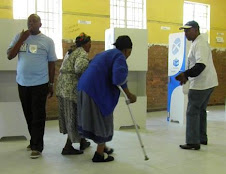











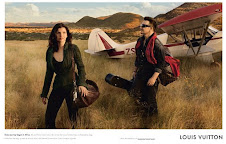


















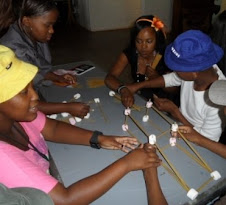














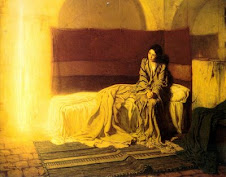













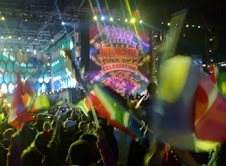













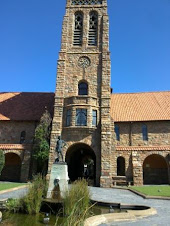











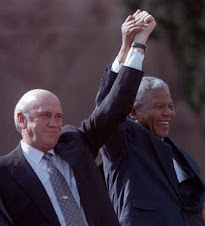.jpg)


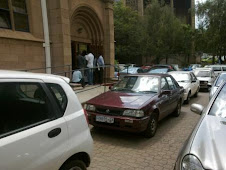





No comments:
Post a Comment
Note: only a member of this blog may post a comment.